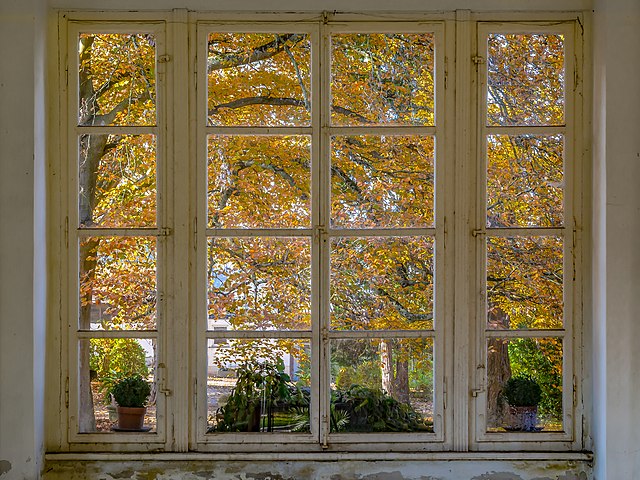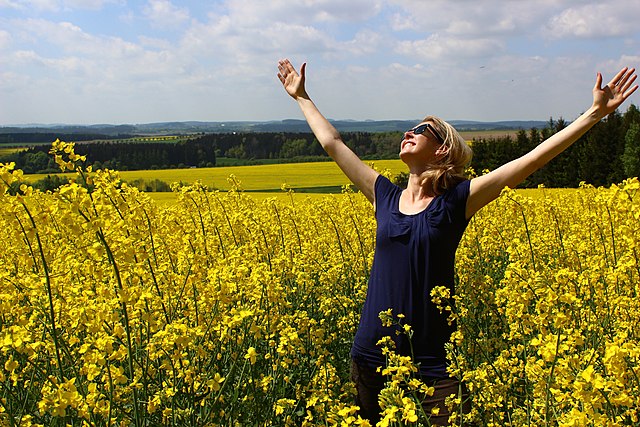
The man in front of me stiffened, squinted, and drew himself closer to the ticket machine. He pressed a button, but nothing happened.
Confused, he turned to look at us, the half dozen people waiting behind him. Our faces were probably blank, bored, or irritated, and offered no help.
Saying nothing, he turned back to the machine and rubbed his forehead with the fingers of one hand in a gesture of frustration.
“Oh, no,” I thought to myself, “Something’s wrong”. And that was when my heart dropped into my stomach. A sense of dread began to build within me. I really didn’t need this right now. I could feel that hot, searing pain in my right leg start to build, and I shifted my weight away from it. It didn’t help.
Suddenly, an older gentleman stepped up from behind me, walked up to the machine, and took charge.
“Try taking your card out,” he suggested. The man took his credit card out, and there was a slight pause as we waited for a reaction.
Nothing changed.
The machine still wasn’t printing out his receipt, and without a receipt, the man couldn’t leave the parking lot. And if he couldn’t leave, then none of the rest of us could leave either!
I shifted my weight again and winced as the now-familiar pain shot through my leg. I felt hot and desperately uncomfortable.
Now the older gentleman became frustrated too. He pushed the “call” button at the front of the ticket machine, and suddenly, we could all hear a distant phone ringing.
No one answered.
Undaunted, the older gentleman pressed the “call” button again.
Still no answer.
So, he pushed the button again, and again, and again, in a never-ending series.
I could hear the people behind me began to shift, sigh, and grumble. A few more people entered the tiny vestibule and joined the growing line in front of the ticket machine, their faces clouding with confusion. What was going on here? Why was the room so crowded?
The room began to feel tight, airless, claustrophobic. My leg throbbed. I felt anxious and trapped.
Suddenly, a man in uniform appeared to my right. “You can all go,” he said, tiredly. “I propped open the exit gate, so you can leave without paying”.
I didn’t take longer than a second or two for his comment to register. People immediately began to rush for the exit. The older gentleman was almost running, pushing past others to get out the door as fast as possible. I don’t think I’ve ever seen a room empty so quickly in my life.
But I couldn’t run. I couldn’t even move quickly. In fact, I could barely walk! While the others flew around me, I hobbled out the door. Step after aching step. All around me, car doors were slamming and engines were revving. As I passed through the parking lot, a car drove in front of me, driving a little too quickly towards the exit gate.
Suddenly, the situation started to feel just a little ridiculous, and laughter began to bubble up within me. Laughter at the way we all dashed to our cars. Laughter at the way the cars rushed toward the temporarily free exit. Laughter at my ridiculous hobbling. And all to avoid paying a $4 parking fee!
In case you’re wondering, I injured my leg a couple of weeks ago while doing Locust Pose. It’s a pose I’ve done hundreds of times before without harm. I chalk up the injury to me pushing myself too hard, and not respecting the stiffness and reduced elasticity of a post-menopausal body.
Technically, it’s not even my leg that’s injured, but the piriformis muscle in the centre of my right butt cheek. A muscle I never even knew existed a couple of weeks ago, but has now begun to dominate my life.
I’ve been seeing a chiropractor twice weekly to help heal my injury, and in just a short period of time, there’s already been big improvement. Or so my chiropractor says. When I seem down, he talks to me about lowered expectations. “At this point in our treatment, if the pain is reducing, we’re doing well!” he says, cheerily. “If your walk has become straighter and more even, then we’re doing well!” And I feel reassured.
The last time I saw him, my chiropractor and I discussed all the little humiliations that come with lower back, and/or sciatic injuries like mine. Humiliations like the sudden inability to walk normally, or the difficulty getting into and out of bed, the struggle to get up off the toilet, and even the strain of putting on your socks and shoes each morning. Such simple things, and yet they’ve all begun to seem like a climb up Mount Everest every day. It’s been incredibly humbling.
Recognizing my frustration, my chiropractor tries to put things into perspective for me. He reminds me to take real pleasure in all my little gains. If I’m already experiencing a considerable reduction in pain, that’s something to celebrate! If I can now walk in strides instead of hobbling, that’s tremendous! He trains me to focus on all the real progress I’ve made, however small, rather than obsess on what I can’t yet do.
So, when I’m finally able to put my socks on without wincing, he says to me, “Hey! Great putting-your-socks-on this morning!” and he gives me a high five.
Which brings me back to that incident at the parking lot and the mad scramble to leave before the exit gate was lowered. I must have been the last one to reach my car, because by the time I finally arrived at the exit gate, no one else was waiting.
And despite my anxiety that I might be too late – that my slow hobble might have caused me to miss the opportunity for free parking, that I might yet have to turn myself around, and limp back into the building to find some way to pay – when I finally arrived at the gate, I found it still raised, and was able to pass through it without incident.
A big smile came to my face as I re-entered street traffic. I felt slightly silly, but why shouldn’t I smile? Why shouldn’t I celebrate this random piece of luck? It may be a small thing, but isn’t life really about the small things?
What small challenge have you overcome recently? Have you, perhaps, finally mastered a new skill at work, after weeks of frustration? Have you finally been able to lift more weight at the gym? Has your baby finally been able to sleep through the night?
Even if there have been no recent changes, can you find simple gratitude in the fact that the sun is shining, or that you are still able to do something as simple as put your socks and shoes on without pain?
Whatever your small gain is, make sure the pleasure counts. Turn up the volume on it. Soak it in. Marinate yourself in positive feelings. Let yourself grin.
Or, do as my chiropractor would, and say, “Great putting-your-socks-on this morning!” And then he’d smile and give you a high-five.


